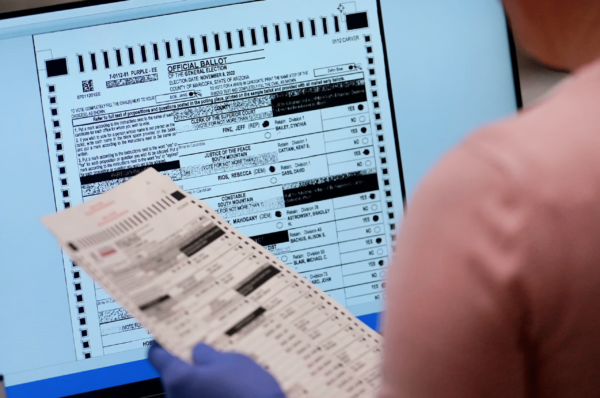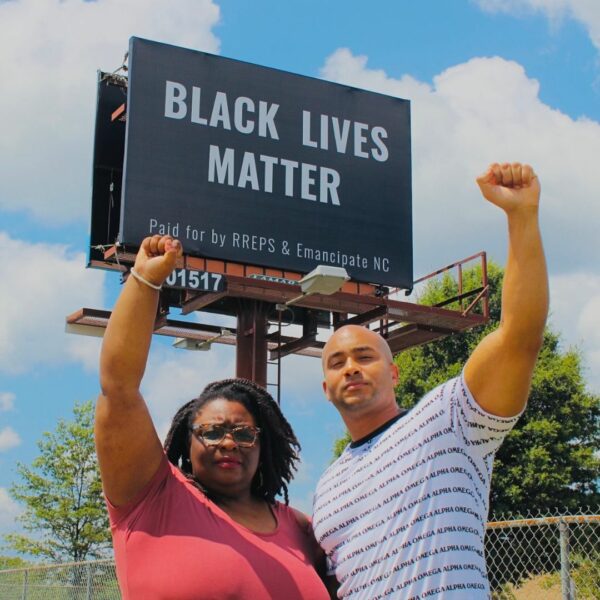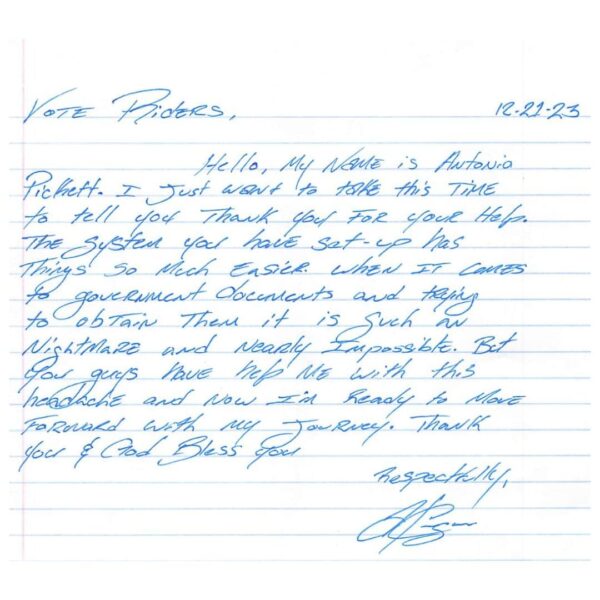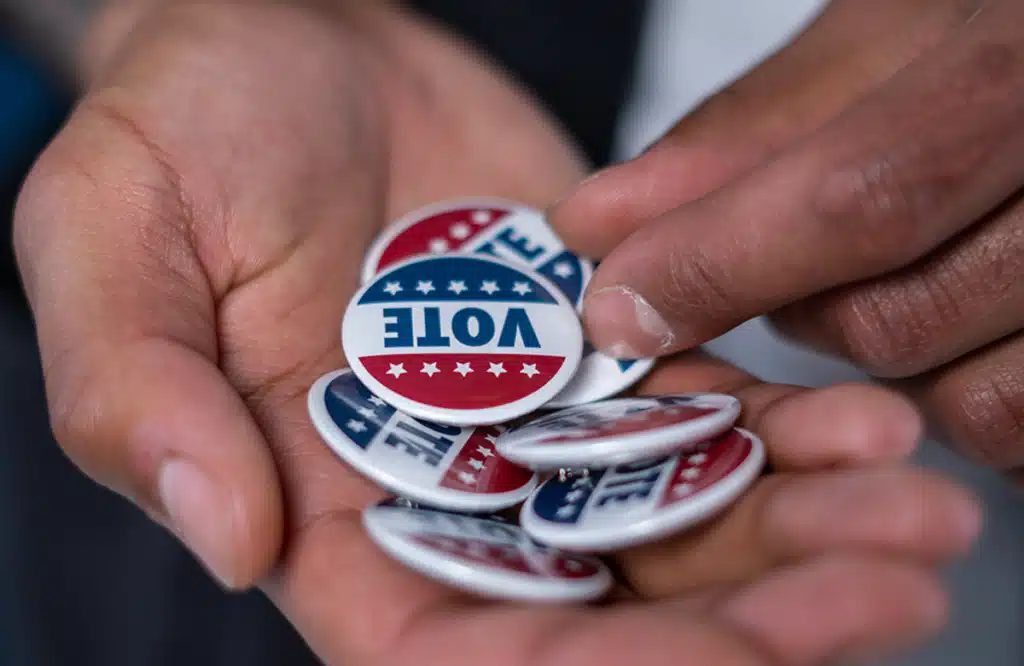
CityBeat Guest Commentary: VoteRiders Helps Ohioans Receive the Proper Identification to Vote
In a country so rich in diversity in so many ways, these increasingly restrictive rules for acquiring a state ID threaten to disenfranchise a substantial number of citizens who want to vote.
BY SHELLY JARRETT BROMBERG, VOTERIDERS VOLUNTEER — MARCH 7, 2024
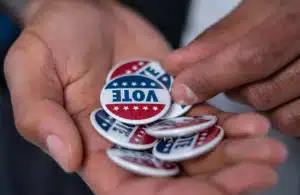
“Family friendly.” Whenever I hear this term, I immediately think of the many citizens whose age, marital status, disability or gender identity become yet another barrier to securing the state-issued ID that Americans increasingly need to vote. Currently, 38 states request or require specific forms of identification to vote.
In many states, like Ohio, to obtain an ID, in addition to providing a birth certificate, anyone who changed their name when they got married must provide certified copies of their marriage license or licenses showing each subsequent change. And then there are the states like Indiana that require both marriage licenses and divorce decrees for each marriage as part of the process for obtaining ID. Requirements like these overwhelmingly impact women and often women who are older, disabled or live on a fixed income.
Although a state ID may be “free,” the costs of providing these required underlying documents can begin to add up as county clerks’ offices throughout the U.S. charge anywhere from $5 to $30 for certified copies.
For people with disabilities, or the elderly, the burden of acquiring a state ID can include all the above with the added challenge of gathering the documents and showing up in person at the local BMV. While a handful of states like Illinois do help provide identity cards to homebound individuals, most states do not. Without the ability to vote in person, many of these voters chose to vote absentee. Yet even that choice is fraught with legal hurdles.
In Ohio, for example, the absentee voter has a very limited group of people who can legally return the ballot for them, and licensed caregivers are not on that list. In other states like Nebraska, to vote absentee, voters must provide their Nebraska driver’s license or state ID number or a photocopy of their qualifying ID with the returned ballot. For some voters, this photocopy requirement alone is a barrier even if they do have an ID as they might not have easy access to a printer or copier.
Many transgender citizens face challenges or intimidation at the polls if their ID doesn’t match their gender identity or presentation even though denying these voters the right to vote is against the law. While most states have implemented policies for changing the gender marker on a driver’s license or state ID, eight states, including Kentucky and Texas, require proof of surgery, court order or an amended birth certificate to process the gender marker change. And these laws are increasingly being tightened. For example, Florida announced recently that gender markers could no longer be changed.
In a country so rich in diversity in so many ways, these increasingly restrictive rules for acquiring a state ID threaten to disenfranchise a substantial number of citizens who want to vote. Thankfully, there are organizations like VoteRiders with a clear and nonpartisan focus on helping people obtain the necessary identification. In one state, VoteRiders volunteers may only need to help a voter get transportation to the BMV to receive their ID, while in another, they may need to spend months working with a voter slowly but surely marshaling all the essential documents to apply for an ID.
No matter how we get to the final point of securing an ID, the voters are inspired to cast their ballot and let their voices be heard. Ultimately, we, as a country, are much more family friendly when we seek to be inclusive and empowering and reach out to support our fellow citizens in our shared commitment to democracy.
Shelly Jarrett Bromberg is a retired educator who works as a full-time Voter ID Assistance Volunteer for VoteRiders here in Ohio.
Read the original op-ed here.

